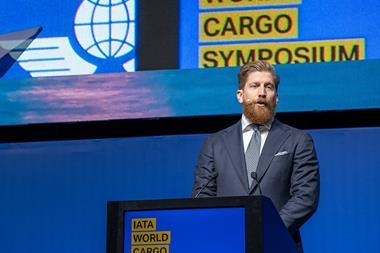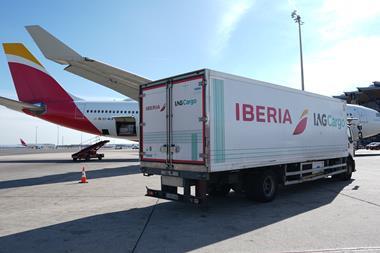LONDON Heathrow's role as an air cargo hub for UK PLC needs to be safeguarded in the political debate over the country's plans for future airport capacity.
The Multimodal conference audience in Birmingham heard from a shipper, freight forwarder and airline that the air cargo hub concept plays a vital part of the nation’s export drive and its food security.
Chris Welsh, of the Freight Transport Association shipper lobby, said that airfreight had been "overlooked" in the recent government-sponsored report on passenger airport capacity headed by Howard Davies.
Hence the FTA's decision to publish its "Sky-high value" research document on the importance of air freight to the UK economy.
Welsh said that 40% of UK imports and exports by value are transported by air freight, although in volume terms that equates to 1.5%.
He added that, "in the highly politicised" debate over UK airport capacity, the importance of the air freight hub concept "had not been recognised” in the original Davies report, but was now an accepted part of the wider debate.
Welsh said that around 39,000 jobs were directly linked to Heathrow's air cargo sector, while several life sciences companies had located along the M4 motorway corridor leading to the airport because of its schedule network, despite operating beyond 95 per cent of its two-runway flight capacity.
Sian Thomas of the UK's Fresh Produce Consortium, representing 600 members, said that 67 per cent of the nation's fruit and vegetables are imported, mainly from Europe, although "a massive volume" of highly perishable exotic produce is pre-packed and date stamped at point of origin for transport in passenger aircraft bellyholds.
Ms Thomas said that it was "vital" that fruit and vegetables were not subject to unnecessary inspection delays at UK airports by port health authorities, adding that some importers were choosing continental airports as gateways for UK bound fresh produce.
Grant Liddell of forwarder Metro Shipping said that Heathrow was in a "very risky position" due to its capacity constraints and suggested that there needs to be "a much greater focus on the air cargo sector at government level".
Tristan Koch, managing director for cargo sales, EMEA, at American Airlines, said that the UK air freight industry needed more investment in capacity and infrastructure, which required a "cohesive" approach by the air freight sector in putting its arguments to government.
Koch drew a parallel with another political football, the controversial HS2 fast passenger rail link from London to Birmingham and to the north.
A concerted effort by the railway operators lobby had won its investment argument for the £50bn project at Westminster, despite intense environmental group opposition.
Koch also made the point that the air cargo industry supports the export efforts of a number of hi-tech industries, including pharmaceuticals, adding: "our industry needs to be more visible in pushing forward the arguments”.










